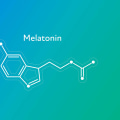Taking the right vitamins and minerals is essential for maintaining good health. However, it is important to know which supplements should not be taken together. Calcium, zinc, and magnesium supplements should not be taken at the same time, as they can interfere with each other's absorption. It is also important to be aware of possible interactions between fat-soluble vitamins and water-soluble vitamins.
Taking too much folic acid can mask a vitamin B12 deficiency, so it is important to be aware of the recommended dosage. When taking calcium, zinc, or magnesium supplements, it is best to take them at different meals or snacks. This is because these minerals are more beneficial for the belly when taken with food. It is also important to know which vitamins should not be taken together.
For example, magnesium should not be taken at the same time as a multivitamin, as it can interfere with the absorption of smaller minerals such as iron and zinc. In addition, it is recommended to refrain from taking calcium, magnesium, or zinc together, as they will “compete for absorption”.Fat-soluble vitamins are stored in the body's liver, fat and muscles and must be taken with fat from a meal for the body to better absorb and use them. However, some studies have shown that vitamin C could break down vitamin B12 in the digestive tract, reducing its absorption. When taking individual supplements such as niacin or vitamin K, it is important to be aware of possible interactions with other nutrients.
For example, research indicates that vitamin D and vitamin K work synergistically to ensure that bones absorb calcium instead of accumulating in the arteries. When taking dietary supplements, it is important to consider the dosage of the nutrients they provide. For example, if you are taking zinc, it is recommended that you also take a 2 mg copper supplement to maintain the balance of these two minerals in the body. Older adults, people who follow a vegan diet, and people with gastrointestinal disorders are recommended to take a B12 supplement. Some providers suggest combining iron with vitamin C to maximize absorption. When taking folate and vitamin B12 at the same time, it is important to be aware that higher folate levels can mask a B12 deficiency.
It is also important to never consume more than 1000 micrograms of folic acid in fortified foods or supplements unless your doctor tells you to. In general, water-soluble vitamins can be taken together without food, and fat-soluble vitamins can be taken together with foods that contain healthy fats.







